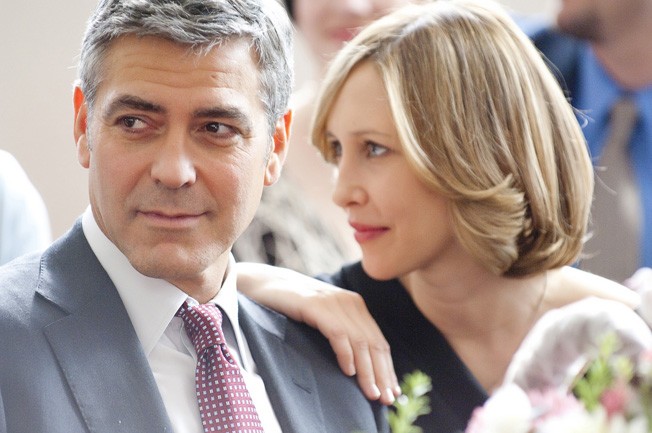If history had played out just a little bit differently, director Jason Reitman would be best known as the director of âÄúDude, WhereâÄôs My Car?âÄù Fortunately, for both him and us, Reitman declined the offer to direct the most idiotic of stoner comedies, focusing instead on intensely internal drama in his first two feature films. âÄúThank You for SmokingâÄù looks at the turmoil surrounding a Big Tobacco spin doctor and his relationship with his 12-year-old son, while âÄúJunoâÄù explores the difficulties of teenage pregnancy. His latest film, âÄúUp in the Air,âÄù stars George Clooney as a loner and detached career terminator attempting to reach an air miles record. Along the way he meets a similarly detached woman and his isolation begins to fade. A&E spoke with Reitman about adaptations, backpacks and the economic crisis. âÄúUp in the AirâÄù is your second book adaptation and youâÄôre working on a third. Have you considered directing one of your own original screenplays or are you content with adaptations? IâÄôm naturally an adapter. I like to react to something, as a director and as a writer. ItâÄôs not like I just read something and say, âÄúOh I would do a good job of that.âÄù Usually I have some kind of question thatâÄôs burdening me and then I find a book that speaks to exactly what IâÄôm talking about. ItâÄôs like finding a like-minded person who has the language for what IâÄôm trying to say. So, for whatever reason I need that kind of spark. What drew you to this particular story as opposed to any of the other books youâÄôve read? It was a combination of two things that related to me. One: It had the type of main character that I like humanizing, a guy who does something very tricky for a living. But on top of that it was a movie about collecting air miles and being alone, which is something that I really relate to. I collect air miles myself and I cherish my alone time. So, I could easily see myself winding up like Ryan Bingham [George ClooneyâÄôs character] and I often wonder how I didnâÄôt. Ryan BinghamâÄôs backpack speech is an important part of the film, but it wasnâÄôt in the book. Where did this idea come from? I wanted a way to articulate RyanâÄôs philosophy and I remember there was a fire in my neighborhood. My wife and I were being evacuated and we had a moment to fill a car with anything we wanted. And we talked it over and we realized there was nothing we wanted to put in our car. It was a terrifying strange moment where we were like, huh, I guess we donâÄôt need anything. And all of a sudden I began to think, what is all this stuff? And I imagined it as a backpack. ItâÄôs the stuff that kind of weighs me down, the stuff that forces me to be in one place versus any other, and it was stuff that was actually meaningless to me at the end of the day. How do you think audiences are going to react to this film in light of the economic crisis weâÄôre going through? I think what makes the movie relatable has nothing to do with the economic crisis. It has to do with the fact that weâÄôre living at a time when weâÄôre more alone than ever. We talk to people through Twitter and Facebook not through actual face-to-face conversations. WeâÄôre kind of content to be in airports that feel like home, but arenâÄôt in fact home. But for people whoâÄôve lost their jobs, I hope they find it as cathartic as the real people who acted in the movie did.

PHOTO COURTESY PARAMOUNT PICTURES
Interview: Jason Reitman
A&E sat down with the director of “Juno” and “Thank You for Smoking” to talk about his latest film “Up in the Air.”
by Tony Libera
Published December 3, 2009
0
More to Discover







